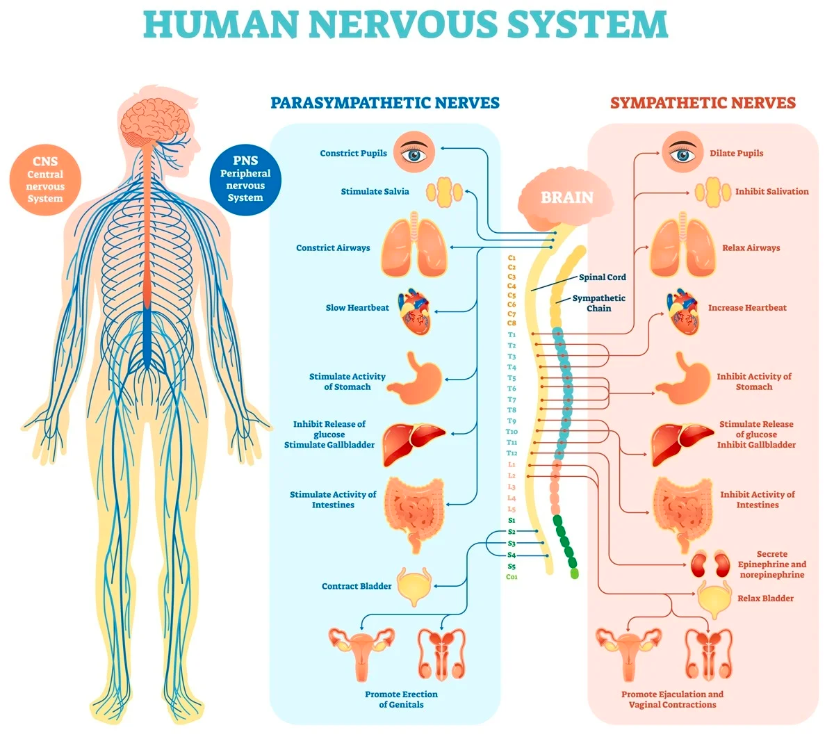Scary Side Effects of a Leaky Gut
October 12, 2022

Happy October loves! While October is the month of cinnamon spice and all things pumpkin nice – it’s also HALLOWEEN month. I love a scary movie or haunted house as much as the next girl. But what I’m sharing this month is far scarier than anything I’d ever seen in a movie. This is because it is not only real but also really common. I’m talking about the scary side effects of a leaky gut that SO many Americans are living with – as if it were normal right now. Worry not though, this blog will also show you 3 easy ways to start showing your gut the love it (and you) deserves.
What is a leaky gut?
When talking about leaky gut we’re referring to a term recently popularised known as Leaky Gut Syndrome. This syndrome is also referred to as gut permeability. While not a diagnosable disease, research has proven this is indeed a real problem, especially amongst high-performing individuals in a highly-stressed culture. It develops from a damaged and thus highly permeable intestinal barrier which allows tiny particles of food and toxins to leak out of your intestines and into your bloodstream. This unfortunate event triggers an immune response, typically autoimmune, leading to excess inflammation despite the immune system’s grand effort to fight potential infection. This cascade of symptoms, in turn, further damages the intestinal barrier, creating a dangerous cycle – leading to dangerous diseases.
How do we damage the intestinal barrier?
According to the Cleveland Clinic, the most severe ways this barrier is damaged would be through chronic inflammation, celiac disease, IBD, HIV/AIDS, and therapies like radiation and chemotherapy.
More everyday causes include regular use of common things like alcohol and NSAIDS (think aspirin and ibuprofen.) Dysbiosis (bacterial overgrowth/imbalance which we test for via a comprehensive GI Map stool test at the Gut Health Agency) takes the lead for the top everyday cause of leaky gut – though dysbiosis itself typically has a root cause as well. But a rather scary and common cause of leaky gut in Western culture includes a poor diet. A Standard American Diet (SAD) high in processed sugar, low in fiber, and containing many processed foods and GMO products is often seen associated with Leaky Gut Syndrome. (According to Medante)
Top 3 Scary Side Effects of a Leaky Gut
1. Chronic Fatigue or Fibromyalgia
The most common complaint we hear both in our practice as well as amongst strangers today is – “I’m totally exhausted all the time.” But what many don’t realize is that there’s a difference between the tired you feel on too little sleep, overworking yourself, and not enough calories – and chronic fatigue. The problem here is we assume that all we need is a quick fix to address our energy levels (queue that 4th cup of coffee per day.) When in reality, chronic fatigue is a much deeper issue. Fatigue feels like you’re heavy all the time. No amount of sleep is enough.
And even your most motivated days – exercising or doing things you KNOW are good for you – just feel too hard. You’re emotionally exhausted from living this way and often find yourself irritable, snappy, and harsh – even with the people you love the most. If this sounds familiar – my friend, you’re not tired – you’re fatigued. And if you can’t remember NOT feeling this way – it’s chronic.
2. Mental Health Issues: Depression, Anxiety, ADD/ADHD
This one really gave me shivers down my spine. To think of how many people have lived most of their adult lives thinking they have to live with depression, anxiety, or AD(H)D as something they were born with or developed. It’s even scarier to think how many people are on personality-altering drugs, just to cope with no logical answer as to why they are feeling this way. What’s truly terrifying is to think of the lives that have been lost to anxiety and depression that could have been saved by fixing their leaky gut syndrome and gut health. Remember – gut health and mental health are the same. And the connection is a two-way-street that communicates via the vagus nerve. We’ll return to this in just a moment.
3. Autoimmune Diseases: Rheumatoid Arthritis, Hashimoto’s thyroiditis, Lupus, psoriasis, Celiac Disease, Crohn’s Disease, and more.
Rheumatoid Arthritis:
The body’s confused immune system attacks its own tissue like joints and, in acute cases, even its own organs.
Hashimoto’s Thyroiditis:
Here the immune system attacks the thyroid, which initially allows in too many thyroid hormones (resulting in rapid, often unhealthy weight loss and/or an irregular heartbeat). Later, this results in not enough thyroid hormones being produced or released. This affects your heart rate, body temperature, and metabolism. Resulting in fatigue, weight gain, cold sensitivity, and dry skin.
Lupus
Similarly to rheumatoid arthritis, this is where the body’s immune system attacks its own tissues. But worse yet it can affect the joints, skin, kidneys, blood cells, brain, heart, and lungs. This shows up as joint pain, rash, fever, and fatigue.
Psoriasis:
When you see this word you should also see chronic, long term and incurable. This is a skin disease that causes a rash with itchy, dry patches on the scalp, knees, elbows, and the trunk of your body. As well as your nails and joints. Psoriasis has been shown to affect everyday life for the person suffering. As the symptoms can disrupt sleep, concentration, and lead to poor body confidence.
Celiac Disease
Probably the most well-known of these thanks to the rise in awareness of gluten. Celiac disease is an immune response to gluten. Eating gluten would cause inflammation and damage to the small intestine. The small intestine is responsible for absorbing nutrients, so an ineffective or damaged small intestine causes malabsorption of some essential nutrients. Symptoms of Celiac Disease include fatigue, bloating, diarrhoea, gas, and anemia. Some people don’t have these symptoms but get sick and suffer from deficiencies without realising the cause.
You can see now how fitting the title of today’s blog is. These are really scary to imagine let alone live with. But I won’t leave you on that note. I’m going to share 3 really easy ways to start taking better care of your gut.
Easy ways to improve gut health in order to prevent a leaky gut
Work on Stress Management:
This seems basic, but often our stress levels is one of the last things we turn to when considering how to prioritise our gut health. The link between chronic stress and inflammation is well researched. Gut specialists like myself and the team at the Gut Health Agency. We understand that when our central nervous system is in a sympathetic “fight-or-flight” response – digestion completely turns off. This is why we systematically teach our clients not only the science behind the connection between stress and gut health. But we also coach you through subconscious healing tools in order to become more resilient to daily stressors. In addition to addressing underlying infections in your gut with a GI Map test. Addressing your stress levels will aid to reduce inflammation, seal the tight junctions in your intestinal wall, and help to heal your gut overall.
Include a diversity of fruits, vegetables, and herbs:
Fibre is your gut bacteria’s favourite food. One of the easiest ways to combat an overgrowth of “bad bacteria” is to ensure that our good bacteria have the proper nutrients they need to fight the good fight. And to keep your precious gut microbiome in harmonious balance. You may visualise a coral reef here. Feeding the coral’s non-predatory and helpful fish will ensure they are strong enough to fight off the coral’s predatory fish that could one day kill the coral reef itself.
Focusing on incorporating polyphenol and prebiotic rich foods that are high in fibre like beans or legumes, green bananas, and even cooked and chilled potatoes into your weekly routine is a great place start. Aiming for a diversity of at least 30 vegetables per week is also a fun game to play. The great news is that ALL whole plant foods contain fibre. That means any serving of fruits and veggies is also a serving of much-needed and much-loved fibre.
Work with a professional:
The first thing anyone should do if they think they have symptoms of Leaky Gut Syndrome is talk to a professional. It’s important to remember that leaky gut can cause a waterfall effect of symptoms and dis-ease in the body, yet typically leaky gut is not the ROOT CAUSE of your symptoms. There is a reason why your inner environment (your terrain) is an opportune environment for infection, dysbiosis, and leaky gut to occur in the first place. You may even consider leaky gut to be another symptoms of a deeper problem.
The Gut Health Agency was created to help high-performing people experiencing these symptoms. We’re a team of Gut Health Coaches and a Registered Dieticians dedicated to helping you improve your gut health with a systematic approach and a signature program that combines both clinical gut testing with the powerful support of certified health coaching. Our team works intimately with the members at the GHA. We not only address the exact dysbiosis and infections that may be thriving in your gut, but we also support you through the emotional and mental roller coaster that gut healing can sometimes feel like. The first step is to apply to our signature program so our experts can create a personalised protocol as individual as you and your gut microbiome are.
I know a lot of this post was scary – but I want to remind you that it is never too late to take control of your health, heal your gut, and feel completely new – maybe even better than your old self ever did – with the right support, accountability, and system (all of which we have for you, at the Gut Health Agency.)
Chelsea
xxx
Leave a Reply Cancel reply
Featured
Read
Podcast
Have you tuned in?
Chelsea interviews professionals to bring YOU today’s most updated knowledge on nutrition and wellness.




